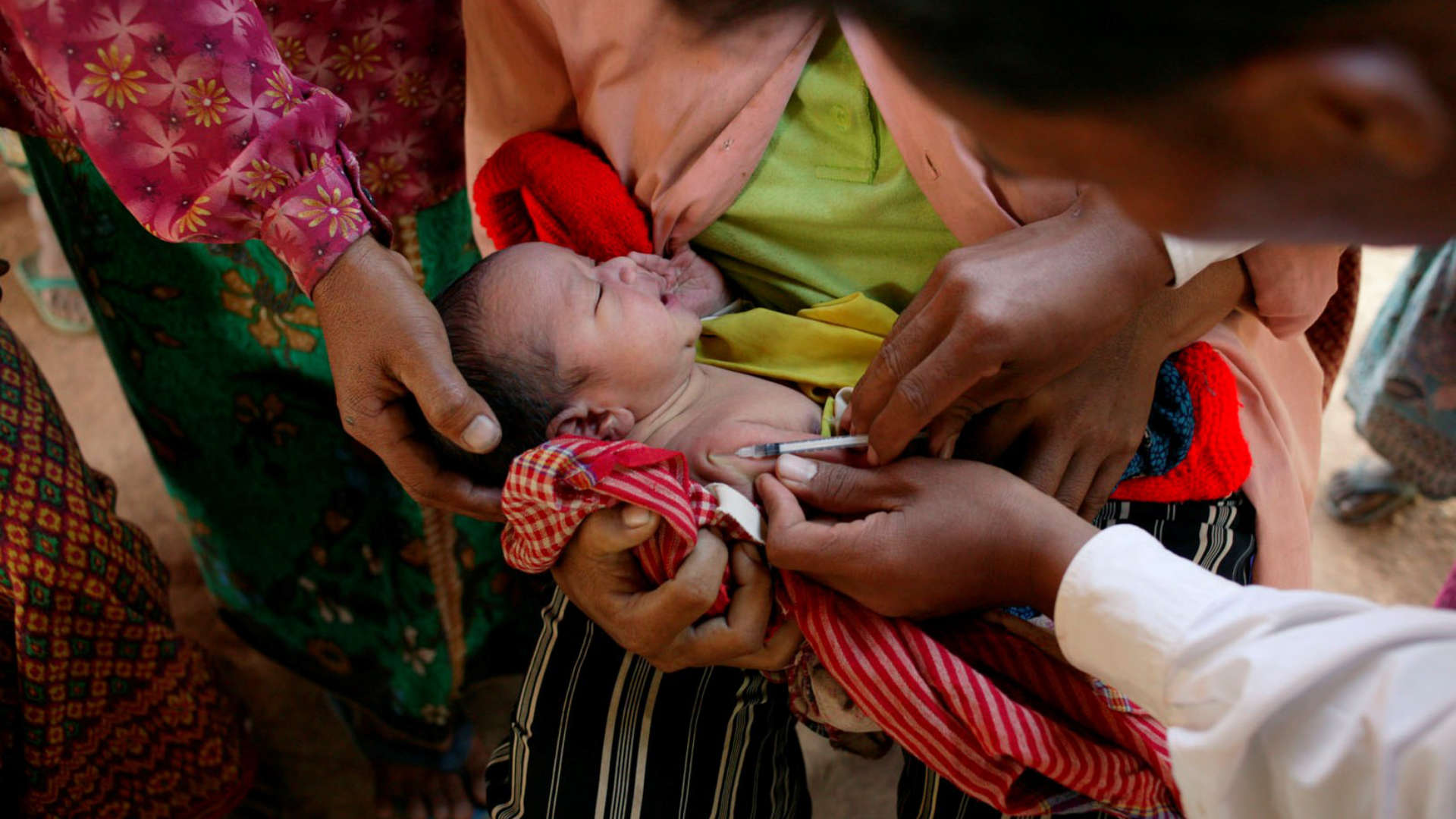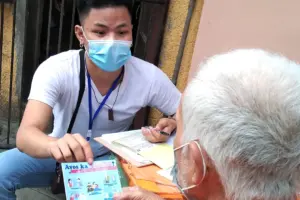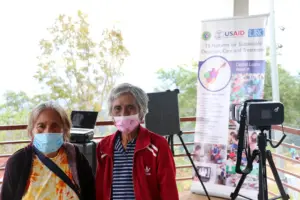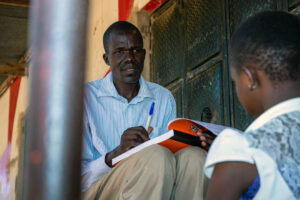
Infectious Diseases
An infant receives an essential immunization. Photo credit: URC
Infectious Diseases
Tremendous progress has been achieved in the global fight against HIV/AIDS, tuberculosis (TB), and malaria. TB and malaria are trending towards global elimination targets thanks to comprehensive prevention and treatment programs and the collaboration of global and regional alliances. In much of the world, HIV is becoming a chronic, manageable disease. Preventable death in women and children due to malaria and diarrheal disease has significantly declined.
Still, infectious diseases continue to exact a heavy toll worldwide. And neglected tropical diseases impact the lives of more than one billion people, with the world’s poorest suffering the most.
Emerging and reemerging infectious disease threats – including avian influenza, Zika, Ebola, COVID-19, and the spread of antimicrobial resistant pathogens – demand a renewed commitment to rapid, coordinated disease surveillance and outbreak response. COVID-19 is threatening to erase momentum built in the fight against HIV/AIDS, TB, and malaria. Certainly, unforeseen outbreaks of any life-threatening disease can dismantle vulnerable health care systems very quickly.
Many of the world’s most marginalized people remain out of reach of essential health resources that prevent, test, treat, and manage infectious diseases. Avoidable morbidity and mortality, linked to poverty, threaten human lives and livelihoods. Continued efforts to strengthen country leadership, governance, and management of infectious disease programs, are critical.
URC has been a leader in the global fight against infectious diseases for decades. URC has also made significant gains in the areas of antimicrobial resistance, especially dangerous pathogens (EDPs) and surveillance strategies for communicable diseases. Our work through country, regional, and global projects has supported ministries of health, private health providers, local and international organizations and communities to strengthen their infectious disease response to existing and emerging threats.
URC’s work strengthens health systems holistically across all components:
- Community-level prevention efforts, communication campaigns, advocacy, and engagement, ranging from insecticide-treated net distribution to community theater, immunization uptake campaigns, and the introduction of advocacy groups to empower young girls and women affected by HIV/AIDS;
- Sub-national level support to district health leaders and providers to improve the quality of service delivery through quality improvement collaboratives, knowledge management, shared learning, and health workforce development; and
- National-level efforts to strengthen a coordinated infectious disease response, including preparedness and planning efforts for outbreaks of Ebola and Zika, support to information systems and networks to improve surveillance, strengthening laboratory diagnostics, streamlining supply chains, and scaling up the use of innovative digital technologies.
Our USAID Regional Health Integration to Enhance Services in both East Central and North Acholi (RHITES-EC and RHITES-N, Acholi) activities lead HIV/AIDS service delivery across all PEPFAR program areas, while simultaneously providing COVID-19 treatment, prevention, and vaccination support. Through the Department of Defense HIV/AIDS Prevention Program, URC works to prevent, test, treat, and manage HIV/AIDS in the military populations of Eswatini, Niger, and Uganda.
URC’s flagship TB CARE II Project, the TB South Africa Project, and the current Defeat TB Activity and TB Platforms for Sustainable TB Detection, Care, and Treatment Project provide leadership to the global effort to eliminate TB.
And our malaria projects including the President’s Malaria Initiative Eliminate Malaria Activity and the Defeat Malaria Activity in Myanmar, and the Cambodia Malaria Elimination Project have made a lasting impact on efforts to contain multi-drug resistant malaria and move the Greater Mekong Subregion closer to malaria elimination.
URC has championed global efforts to rapidly scale up responses to new and emerging infectious diseases. We are on the frontlines supporting country efforts to control the spread of COVID-19 by improving vaccine confidence and facilitating the rollout of vaccination campaigns. These efforts are essential to sustain the gains made to control infectious diseases for improved health worldwide.


